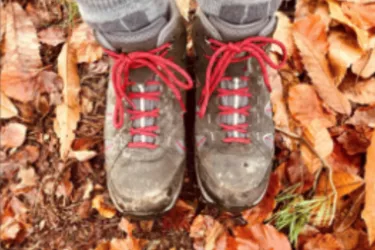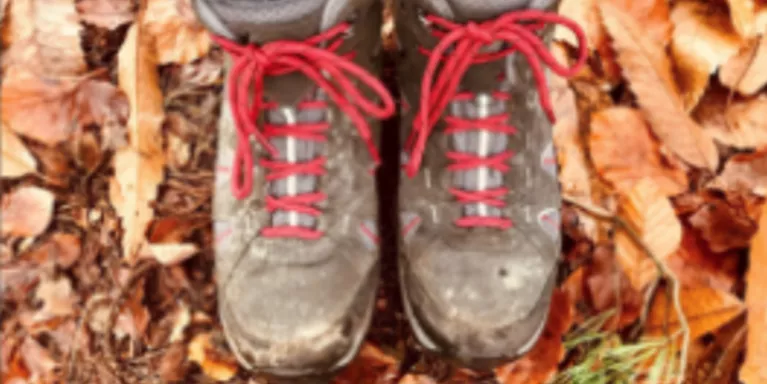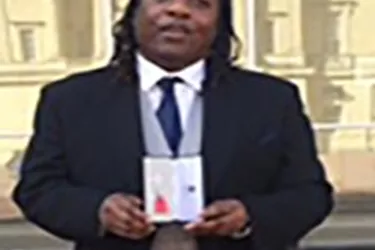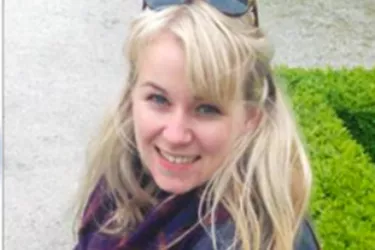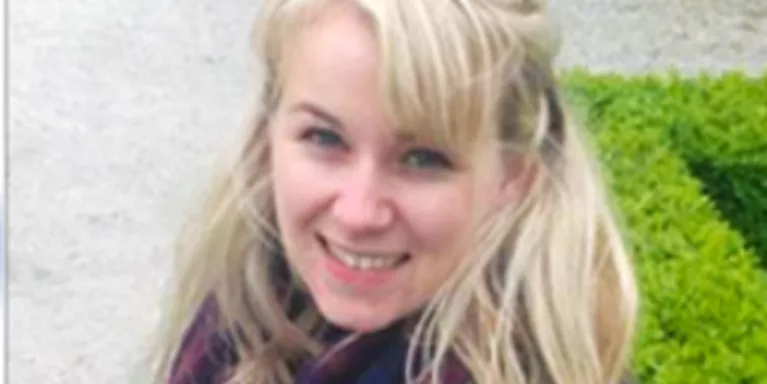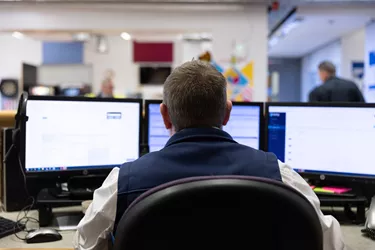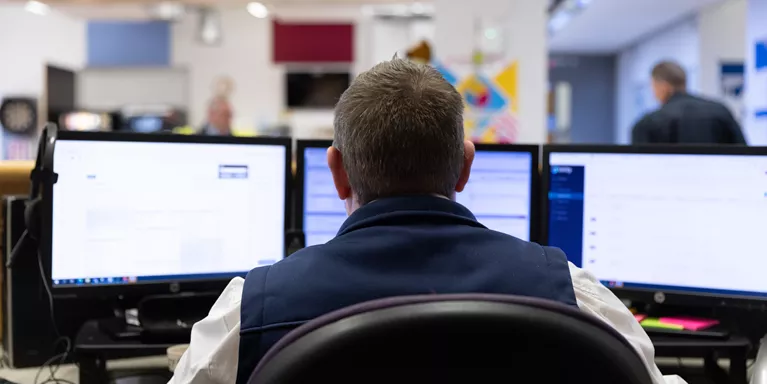Tackling anxiety and taking on Mind Hike
Nikki shares her journey of being diagnosed with generalised anxiety disorder (GAD), and preparing for a 34 mile trek across extreme terrains to raise money for better mental health.
Nikki is a Mental Health Writer who blogs about her experiences with Anxiety and Depression.
Follow Nikki on Twitter at @DgtlButterfly.
It was last October, a few days before my 38th birthday. I was sitting cross-legged in my husband’s arm chair. He was at the pub, playing his Tuesday game of darts. The kids were asleep upstairs. Even the German Shepherd, my only protector, had retreated to her bed. I felt completely alone. And the anxiety built.
I’ve suffered from anxiety for nine years. It appeared on my doorstep, like an unwelcome guest, alongside its friend depression. Following the birth of my son, I suffered from post-natal depression and panic attacks. Both were so severe I had to be hospitalised for more than two months. While I beat the depression the anxiety still lingers. In the summer of 2018, I was diagnosed with generalised anxiety disorder (GAD).
"I sat in the armchair with my rising anxiety."
As I sat in the armchair with my rising anxiety, I felt I had to do something to stop it. I started scrolling through the Mind website. It was then that I came across Mind Hike 2019 – the Scottish Isles.
The concept of hiking for 24 hours around the Isle of Arran is not something that has ever crossed my mind. I’m not that physically fit. I walk the dog a few times a week and occasionally go to a fitness class. But something jumped out to me about this hike. On a whim I registered to take part and was accepted.
"I took several deep breaths."
For the last few months I’ve been trying to get my mind and body ready for what it will go through. 34 miles across extreme terrains with minimal breaks and no sleep. I’m fairly used to minimal sleep thanks to my 17-month-old. But no sleep. And no toilets. Now that’s making me very anxious.
But before I can even think about the mountains I first have to focus on two key tasks that lie ahead: fundraising and training.
Just before Christmas I hosted a fundraising bingo evening at my local pub. This was tougher than I anticipated. It pushed me to do everything that thrusts my anxiety into overdrive.
"I felt a great sense of achievement."
A selection of festive prizes was needed for the bingo, as well as donations towards a Christmas hamper raffle. This sounded good in theory, until the reality kicked in that I would have to contact all the local businesses, speak to strangers, tell my story verbally and ASK FOR HELP. All the above started to cause a lot of panic. In the beginning there were so many NO’s. So many people said, “come back later in the week”. I felt completely disheartened, like a failure already.
But I kept trying. I took several deep breaths. I emailed my fundraising story ahead of time to reduce the stress of verbalising it to strangers. I pushed through the anxiety until I had a beautiful selection of prizes. I felt a great sense of achievement and the evening hadn’t even begun yet.
When the night arrived, I was a wreck. I had developed severe laryngitis and couldn’t speak. My usual, high anxiety symptoms rose to the forefront. I was uncontrollably snappy (which is tough without a voice!), sweaty and obsessed about being late. The what ifs appeared again too.
"Cue the what ifs"
What if no-one turns up? What if everyone laughs at me? What if I don’t make enough money? Oh God, what if I have to do this ALL OVER AGAIN!
With bunting and mince pies at the ready, I passed my thank you for attending blurb over to a friend, who kindly read it out on my behalf. At least there was one advantage to having no voice. The wine (and money) flowed and before I knew it my evening target was reached and doubled. A huge success. I felt an overwhelming sense of gratitude and relief.
With 2019 symbolising a fresh start for myself and my family, I headed off into the January sales to look for my new boots. Husband and children in tow. I’ve never bought proper hiking boots before. I nervously asked for some help and explained about the hike. Each pair I was presented with, pinched or rubbed in some way or another. Which started to worry me. (Cue the what ifs).
"I’ve started to understand what I’ve signed myself up for."
What if I can’t find the right boots? What if they start hurting an hour in? What if get awful blisters and can’t continue and have to retreat to mountain hut only to be eaten by wild Scottish bears! (Logic escapes me during panic)
I awkwardly climbed the pretend mountain in the shop. All too aware of the silent giggles coming from my family. I pushed my toes forward and rolled my heals back, simulating the ascents and descents I’d be doing on the hike. Feeling my anxiety and embarrassment rising, I decided to get out of there. I bought a pair of boots and questioned my decision the whole way home.
The truth it is, it’s only been since I’ve put the boots on and stepped out into the mud, that I’ve started to understand what I’ve signed myself up for.
"Mind Hike 2019 is only a few months away."
Each week I’m pushing myself to walk that bit further. I struggle with the what ifs ahead of a walk. Fearful of failing. Terrified of getting lost. But once I’ve completed it, although I ache, I feel a sense of pride in myself. And that’s a feeling I realise I don’t feel often. And the anxiety disappears.
Mind Hike 2019 is only a few months away. I’ll be there on that Scottish island, challenging myself to the extreme and beating anxiety off with my walking pole.


Information and support
When you’re living with a mental health problem, or supporting someone who is, having access to the right information - about a condition, treatment options, or practical issues - is vital. Visit our information pages to find out more.
Share your story with others
Blogs and stories can show that people with mental health problems are cared about, understood and listened to. We can use it to challenge the status quo and change attitudes.










